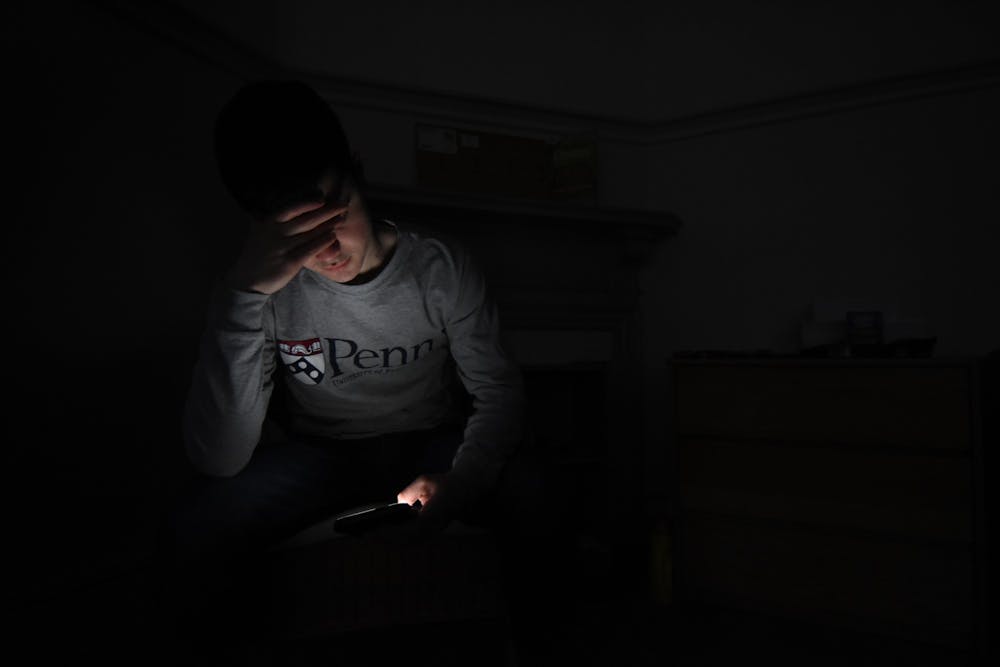Growing up, I was terrified of failure. In elementary school, I vividly remember being scared that I would incorrectly read words aloud on reading tests. Eventually, the fear of academic failure burrowed into other areas of my life. Even now, I often ruminate about past mistakes I’ve made, most prominently in relationships that did not work out, but I feel like I have a healthier relationship with failure now. Of course, learning to live with failure took time for me.
During my first year of high school, my world history teacher taught me about the power of having a growth mindset, or the belief that our abilities are shaped by our effort. The opposite is having a fixed mindset, which is the belief that our abilities are immutable, or set in stone. I would go back and forth between having a growth mindset and a fixed mindset depending on my mood, yet I chose to build a growth mindset by focusing on seeing obstacles as opportunities for growth.
As I entered Penn, these lessons gave me a different way to frame mistakes — instead of viewing them as failures, I can view them as opportunities to learn. Of course, framing failure constructively does not erase the sting of falling short. However, we can remedy the pain by recognizing that failure is something we all experience and can learn to embrace.
Whenever I experience a setback, I sometimes practice real-time resilience (RTR), which is a positive psychological intervention that I learned from a guest speaker named Dr. Judy Saltzberg in a class I highly recommend: The Pursuit of Happiness. When we experience hardship, we often fall into thinking traps, or destructive, judgmental thoughts that result in us beating ourselves up, making all-or-nothing judgments, or catastrophizing that the worst possible thing will happen. Resilience training can help us restrain those thoughts by focusing on what we can control (“One thing I can control is…”), reframing (“A more productive way to see this is...”), planning (“If X happens, then I will do Y”), and refuting with evidence (“That’s not true because…”).
As Penn students, we often set high expectations for ourselves, whether it be in the form of the classes we take, the clubs we join, or the ways in which we budget our time. When we do not reach the goals we set for ourselves, it can feel disappointing.
However, there are forces at Penn that are pushing against this high tide of achievement culture. In Spring 2019, The Signal – a Penn student organization that encourages exploration of alternative career paths – hosted an event that I found impactful during which Penn seniors shared about their failures. One comment I found particularly compelling was by former Penn President Michael Krone, who explained that “asking for help doesn’t make you weak. It makes you healthy.” The Signal also launched their Anti-Resume Project, where students listed jobs they did not get, clubs they were not a good fit for, and lessons they have learned that will still matter for them in ten years.
In short, let’s try to have more conversations about what we learned from our mistakes rather than avoid these errors altogether. We can reframe how we see failure if we are willing to have that conversation with ourselves or with a trusted friend or family member. We’re all going through something.
We should even joke about our past failures, as long as we are not overly self-deprecating. During my first year in the Quad, one of my biggest embarrassments was when I put my entire feather duvet, not just the cover, into the washing machine. The result was a duvet that smelled like rotten eggs. Anyone who has not done their laundry before, please take note.
I’ve made many other mistakes in college so far, and I will make many more before I graduate, both inside and outside of the classroom. However, the important thing is to remember what I can control. I can remind myself that mistakes are a part of growth. Just as change is inevitable, failure is an unavoidable human experience.
As we highly anticipate this unusual fall semester, let’s be kind to ourselves when we stumble. I like to remind myself that “we’re all learning as we go.” No one has all the answers for what this return to on-campus life will look like.
With the Delta variant of COVID-19 on the rise, there are bound to be unpredictable surprises and setbacks on our campus and around the world. Adjusting to in-person activities – from classes to exams to social gatherings – will not be easy. We may feel a wide range of emotions, all of which are valid.
I’m a little rusty at this in-person thing, yet I am confident in our community to bounce back because human beings are an adaptable, creative social species. Most importantly, I’ll try to view the mistakes as a part of the process, not a reason for discouragement.
As long as we remember that failure is a part of learning, then I think we can overcome almost anything.
JADEN CLOOBECK is a College senior from Laguna Beach, Calif. studying psychology. His email address is jaden@sas.upenn.edu.









